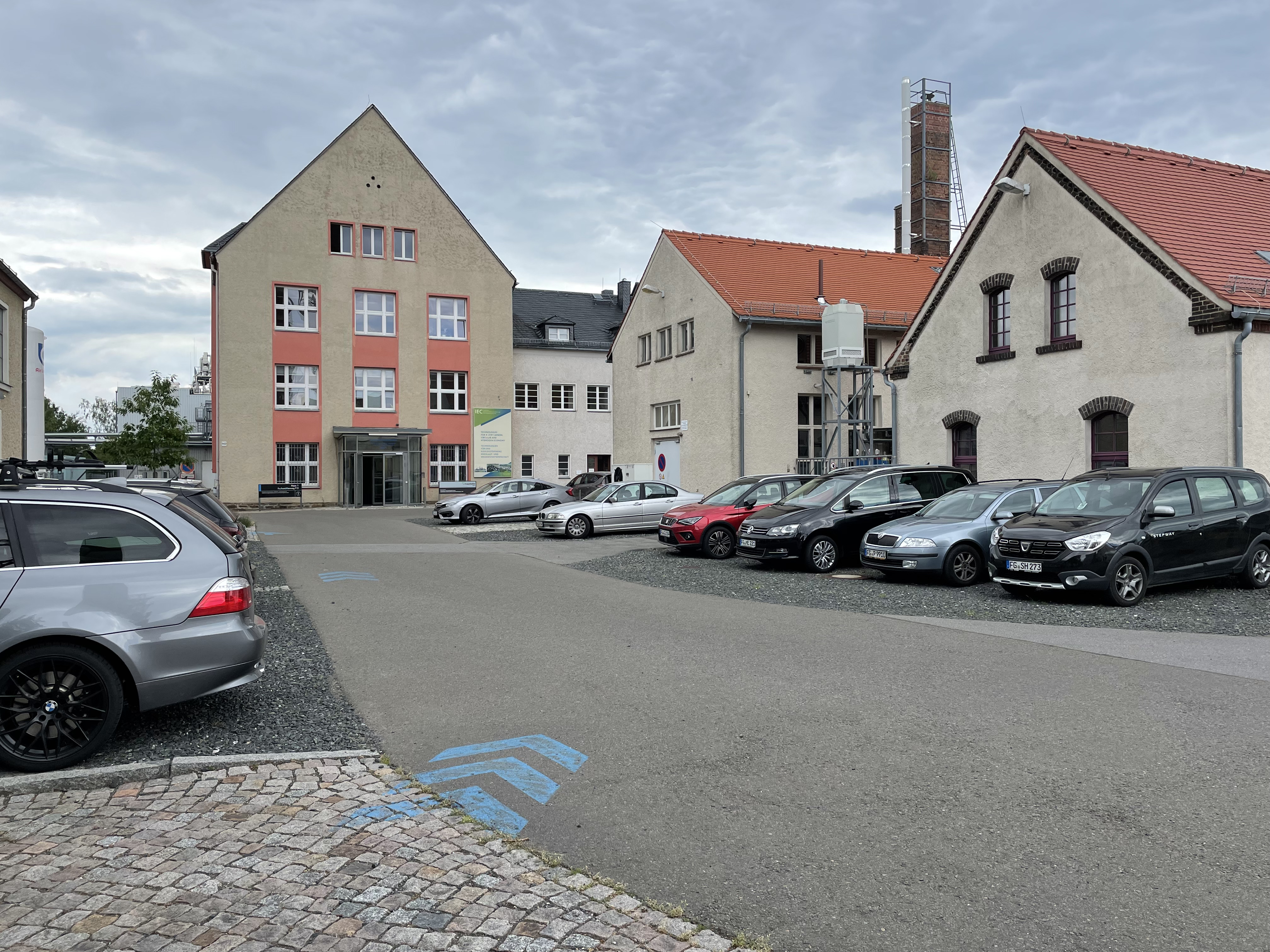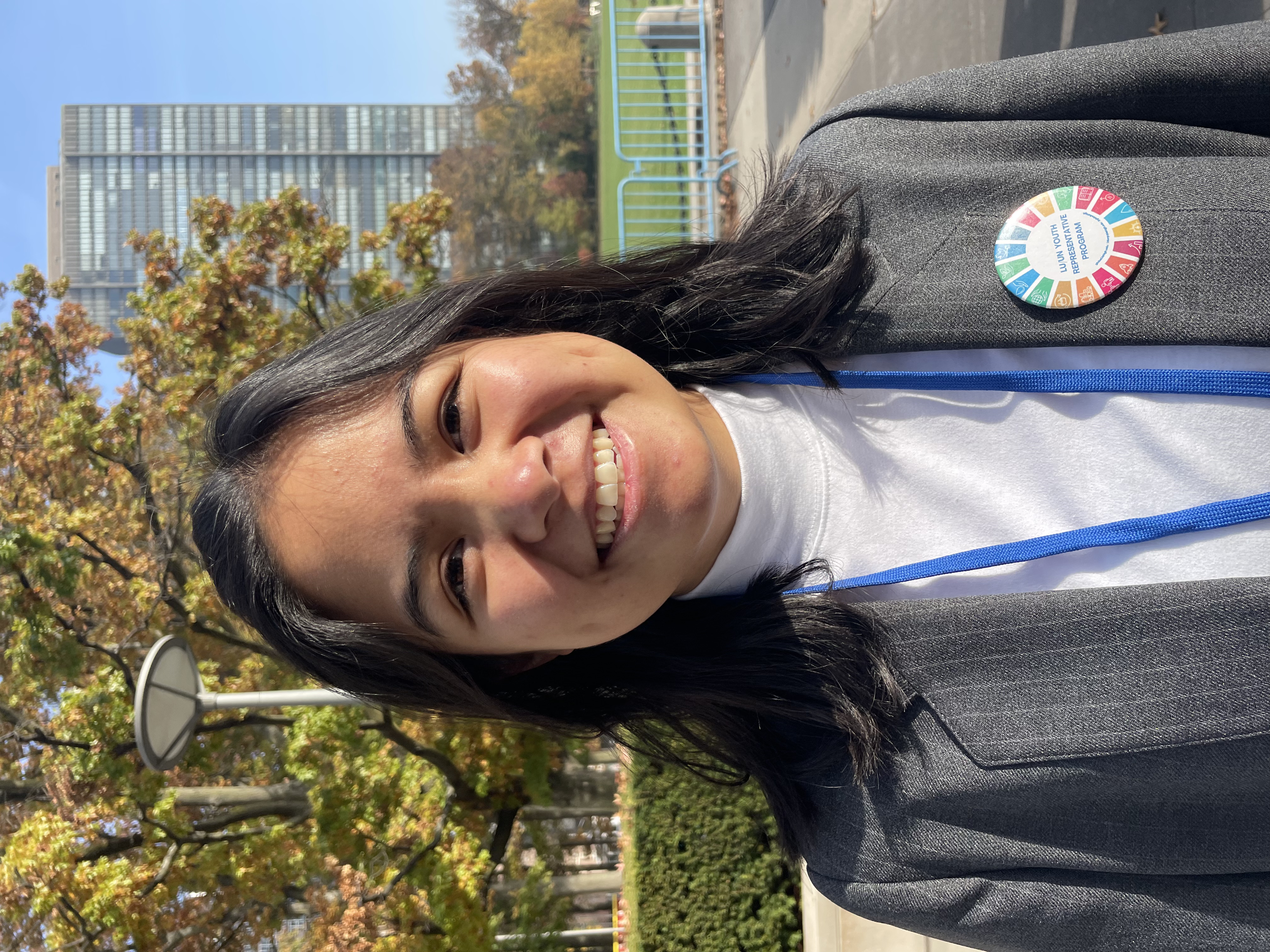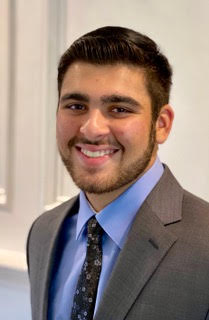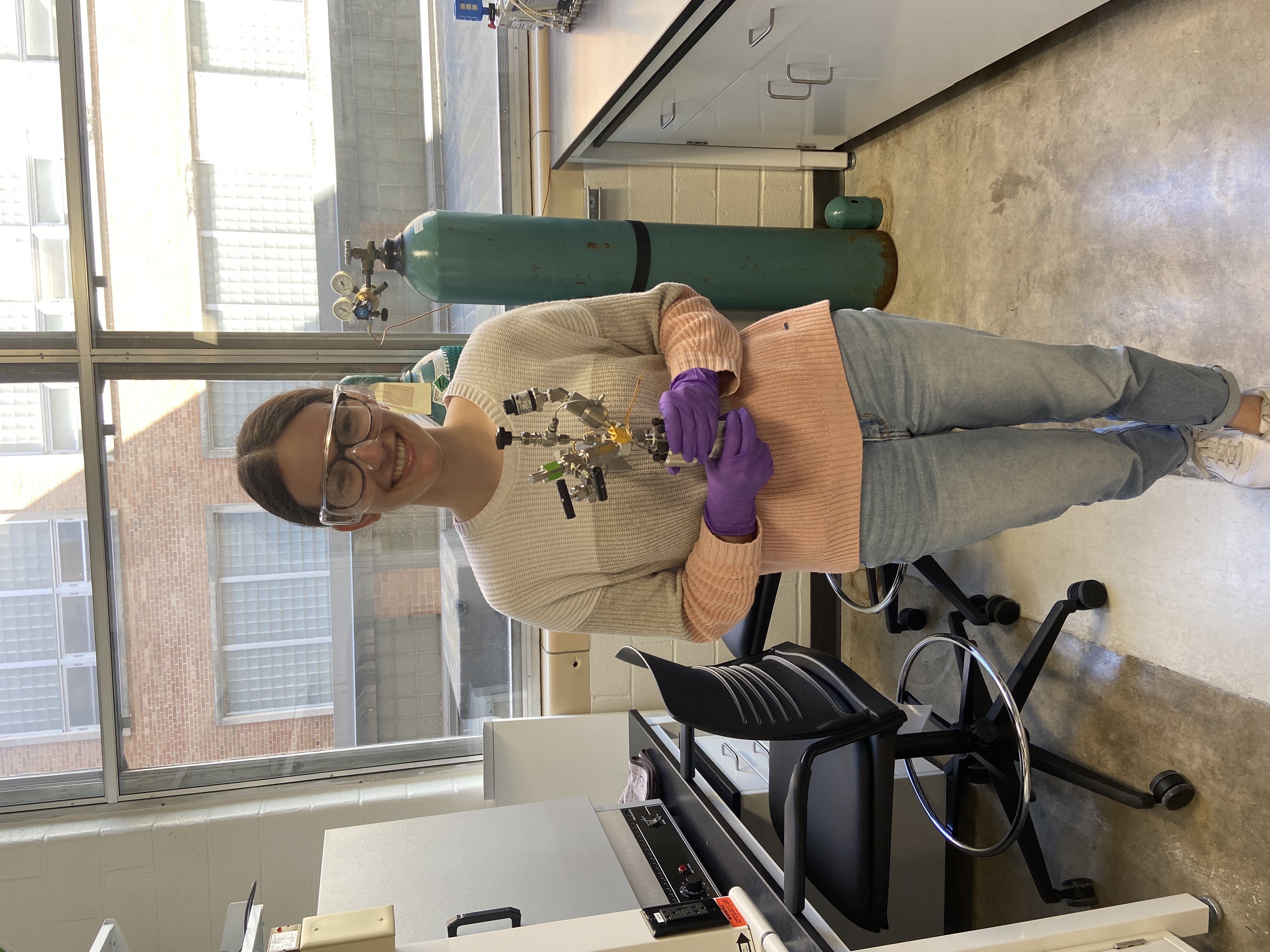Undergraduate students participate in various summer research internship programs, whether competing for scholarship awards to study abroad or connecting directly with local company talent recruiters. Learn about their experiences first hand as the intern.
Lauryn Holgado '24 won the DAAD RISE Germany Award. Sponsored by the German Academic Exchange Service, or DAAD, RISE Germany offers summer research internships in Germany for undergraduate students from North America, Great Britain and Ireland.
 Experience: My internship was in Freiberg, Germany and lasted 10 weeks. I worked at a university and my project focused on the oxidation of methane and formaldehyde using iron oxide catalysts with an application to sustainable fuels. During the duration of the internship, I synthesized catalysts and catalyst precursors, characterized the catalysts, and tested their efficiency in converting methane and formaldehyde into less toxic chemicals. There were several opportunities to present my research at the DAAD RISE conference and at the university.
Experience: My internship was in Freiberg, Germany and lasted 10 weeks. I worked at a university and my project focused on the oxidation of methane and formaldehyde using iron oxide catalysts with an application to sustainable fuels. During the duration of the internship, I synthesized catalysts and catalyst precursors, characterized the catalysts, and tested their efficiency in converting methane and formaldehyde into less toxic chemicals. There were several opportunities to present my research at the DAAD RISE conference and at the university.
Feedback: I think there was a nice balance between exploring the area I was in, learning about German culture and working on my research project. I really liked how I was able to work independently which gave me a very good understanding of the research process. I believe that research in Germany is very similar to other academic research experiences I have had in the past. One thing I would say is different is that the entire reaction engineering department at the institute focused on catalytic research. This created a very collaborative environment. Outside of my internship, I took advantage of the weekends to travel around Europe and Germany in general. I also got to know my cohort of interns very well. During the duration of my internship, I was able to travel to Dresden, Leipzig, Berlin, Prague, and Vienna. There are many opportunities to explore other parts of Germany and other countries through train and bus.
Advice to other students: Don't be afraid to ask questions. When choosing which project to apply too I would look for what research interests you the most but also think about the location. I did a lot of things on the weekend and was able to go to neighboring cities for the day which made the internship a lot of fun.
Wesley Patel '22 was selected for an internship by the company Owens Corning to accomplish their “Future of Work” and “Digital Manufacturing” initiatives.
Eva Wolfe '23 won the NSF-REU Award. (National Science Foundation Research Experiences for Undergraduates). The Research Experiences for Undergraduates (REU) program supports active research participation by undergraduate students in the areas of research funded by the National Science Foundation.
Experience: The REU program flew me out to Madison (free of charge for me) at the beginning of June, and I stayed in an apartment building close to the engineering building with other REU students from various programs. I joined Professor Siddarth Krishna’s lab, and my project was on controlling selectivity of levoglucosanol (a renewable chemical precursor) production by encapsulating palladium nanoparticles inside the pores of zeolites (microporous crystalline supports) to confine the reaction. The project I was working on was a new project, and it challenged me to explore the literature and think creatively when problems we did not anticipate arose. In addition to doing experiments in the lab, the REU students also attended seminars three times a week where we were provided lunch and listened to presentations given by the UW-Madison faculty about their research. I worked in the lab from about 8:30 am to 5:30 pm on weekdays and had plenty of time in the evenings and on the weekends to explore Madison. The graduate students in my lab were very kind and always invited me to social events held by the Chemical Engineering Graduate Student Association, which gave me a feel for what life would look like as a graduate student at UW-Madison. The REU program concluded with a poster session. I created a poster summarizing the work I did and presented this poster to professors, students, and parents. This experience taught me to gauge my audience and tailor my presentation to suit their level of knowledge about my research topic.
Feedback: My experience participating in an NSF-REU at UW-Madison was unforgettable. I was exposed to new equipment and techniques, learned a lot about analyzing data and navigating a new project, and honed my science communication skills. Everything I learned has helped prepare me for my goal of pursuing graduate study. My summer research advisor and labmates (along with my professors at Lehigh) have been very supportive of my goals and even helped me with the graduate school application process. Outside of the lab, having the opportunity to explore a new city and make friends from across the country/world was amazing. I have many great memories from both in and out of the lab that contributed to one of the best summers of my life.

 Lauryn Holgado '24
Lauryn Holgado '24 Wesley Patel '22
Wesley Patel '22